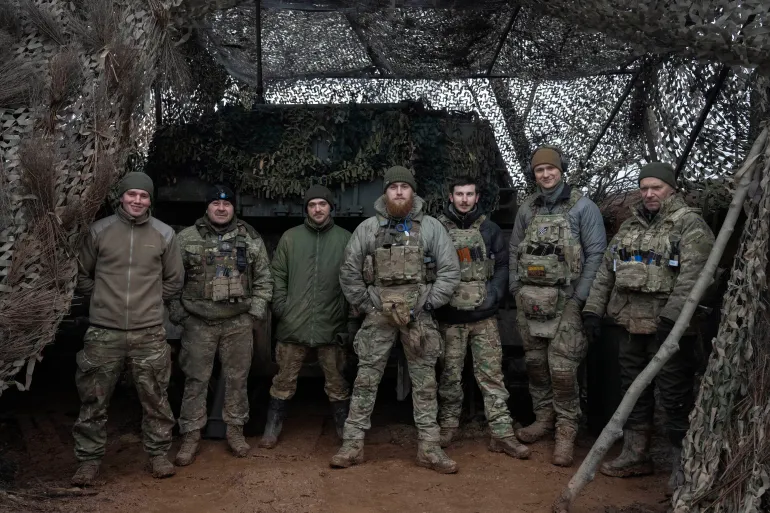
The United States has lifted a long-standing ban on providing weapons and training to Ukraine's Azov brigade, a controversial military unit known for its significant role in the 2022 defense of Mariupol. This decision follows a thorough review by the US State Department, which found "no evidence" of human rights abuses by the current unit, marking a significant shift in Washington's policy towards the brigade.
The Azov brigade, initially formed in 2014 as a volunteer militia to combat Russia-backed separatists in eastern Ukraine, has a complicated and controversial history. Originally, the unit drew fighters from far-right circles, leading to widespread criticism and allegations of extremist ideologies and tactics. Due to these concerns, the US had previously imposed a ban on the regiment, prohibiting it from receiving American weapons and training.
In its recent statement, the US State Department clarified that the current Azov brigade is distinct from its predecessor. "The original militia, which drew far-right elements, was disbanded in 2015," the statement noted. The present-day Azov brigade, which has been integrated into Ukraine's National Guard as the 12th Special Forces Brigade, has undergone significant restructuring and efforts to distance itself from its controversial past.
The US decision comes at a crucial time for Ukraine, which is grappling with severe shortages of ammunition and personnel amidst ongoing conflict with Russian forces. The State Department highlighted Azov's "heroic role" in the 2022 battle for Mariupol, where the brigade's soldiers held out for weeks in the city's steelworks despite being heavily outnumbered and low on supplies. This defense effort has turned Azov's soldiers into symbols of Ukrainian resistance, celebrated for their resilience and bravery.
The lifting of the ban is expected to enhance Azov's combat capabilities significantly. The brigade has expressed optimism about this development, stating on social media, "Obtaining Western weapons and training from the United States will not only increase the combat ability of Azov but most importantly, contribute to the preservation of the lives and health of personnel." The support from the US is likely to bolster the brigade's effectiveness in the ongoing war, providing much-needed resources and training to strengthen Ukraine's defense efforts.
However, the decision has not been without controversy. Moscow has persistently portrayed Azov as a Nazi group, accusing it of atrocities and designating it a terrorist organization in 2022. Kremlin spokesman Dmitry Peskov criticized Washington's move, suggesting it indicated a willingness to "suppress Russia even by flirting with neo-Nazis." These allegations, however, have been largely unsupported by concrete evidence.
Human Rights Watch had previously raised concerns about the Azov brigade, citing credible allegations of abuses. However, since the departure of its first commander in October 2014, the brigade has reportedly been "cleansing itself" of undesirable elements and working to improve its public image. Efforts have been made to recast the unit as a professional and skilled fighting force, distancing itself from past associations with far-right ideologies.
The US decision to lift the ban underscores a nuanced understanding of the brigade's evolution and current status. By providing weapons and training, Washington aims to support Ukraine in its ongoing struggle against Russian aggression while acknowledging the significant changes within the Azov brigade. This move signals a strategic alignment with Ukraine's military needs and a recognition of the brigade's transformed identity and contributions to the country's defense.

















